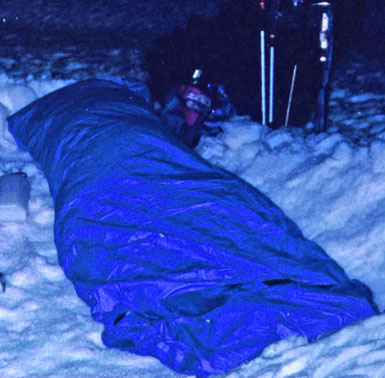
Disturbed sleep during the first few nights at altitude is common and normal. You may be slow in getting to sleep, wake up a lot and feel that you have not slept well, or feel less refreshed.
Poor sleep may be related to how well your body is adjusting. As you acclimatise sleep usually improves. People with AMS may also sleep badly, suggesting poor acclimatisation.
Other things such as cold, someone snoring, or an uncomfortable bed or tent may also be a problem.
Altitude may increase the number of times you need to pee, so you lose more sleep.
Many changes are because you breathe more. In some people this may cause ‘periodic breathing’ at night, where rapid breathing is followed by periods when breathing briefly stops, sometimes causing you to wake up. This is common over 2,800m, and almost everyone gets it over 5,000m. Apart from worrying your tent mate, it does not appear to be harmful and gets better with acclimatisation.
Snoring may be made worse by dry, dusty air but night-time blockage of the airway at sea level (‘obstructive sleep apnoea’) does not appear to get worse with altitude.
Expect to need more sleep.
Consider avoiding caffeine and alcohol later in the day.
If your sleep does not improve after a few nights do not go higher - consider going down to allow acclimatisation.
Invest in your sleep comfort - a good quality sleeping bag and mat.
Bring ear plugs to aid sleep.
If being treated for obstructive sleep apnoea, check with a specialist sleep doctor.
I slept so badly! My tent mate must have got up every hour in the night to pee!

